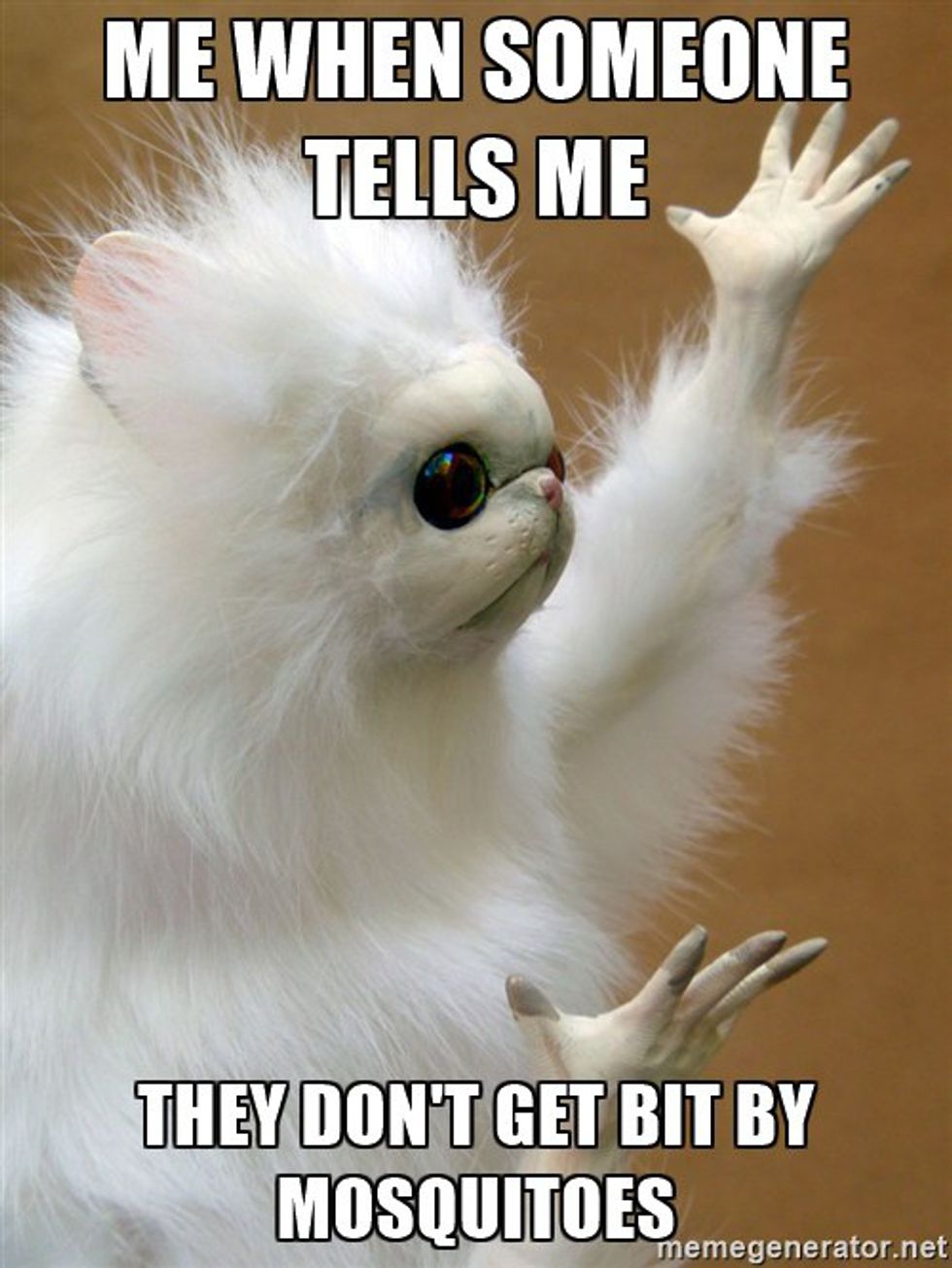At one point or another, if you live in Florida you have experienced the wrath of at least 20 mosquito bites from being outside for 10 minutes. But then you also have those friends of yours that say “Oh, I barely ever get mosquito bites.” They’re the bane of your existence, am I right?
Interestingly enough, those friends of yours are not just lucky people.
For as much as a nuisance mosquitoes are, they are actually scientifically fascinating creatures. Similar to all animal instincts, they’re unconscious to them, yet a necessary component to their survival. For mosquitoes, their favorable trait for survival, is their strong attraction to CO2 gas.
If one looks back to their high school biology days, they’ll remember learning about a metabolic process called cellular respiration. This catabolic reaction breaks down the glucose derived from your food combined with oxygen from the air and disassociates them into water (H2O) and carbon dioxide (CO2). The water enters the bloodstream in order to be filtered by the kidneys, whereas the carbon dioxide exits the body as one exhales in the form of gas.
There is a standing myth that mammals breathe out 100% carbon dioxide.
That's just not true...
Cellular respiration has a high inefficiency rate and most of what you exhale is actually oxygen gas (O2(g)). This myth was debunked through experiments of trapping testing animals in boxes and measuring they CO2 released as time progressed.
They can actually last for quite some time before running out of oxygen.
Therefore, the more efficient one’s metabolism (cellular respiration rate) is, the more CO2 will be released as a byproduct. Due to the rational relationship between the intake of oxygen and release of carbon dioxide, the more CO2 one breathes out, the more O2 one has in their bloodstream.
This is the true reason as to why mosquitoes are attracted to people who breathe out more CO2.
Mosquitoes receive the majority of their iron and oxygen from the blood they suck out of mammals. Unfortunately, they cannot take in as much blood as one might think being anywhere from 0.001 to 0.01 of a milliliter. Therefore, they need to receive as highly concentrated nutrients as possible. Henceforth finding the “fittest” victim is essential.
This is also why people who are overweight and have slow metabolisms (therefore low CO2 disbursements) do not get bitten as much. Additionally, this explains why people with Sickle Cell Anemia do not get bit by mosquitoes very often. The complex protein hemoglobin is what carries iron and oxygen on red blood cells. This disease distorts this protein which lowers the amount of iron and oxygen a red blood cell can carry; furthermore, their blood-oxygen levels.
To summarize…
- The more efficient the metabolism, the higher the CO2 volume release.
- Due to O2 and CO2’s direct relationship, the more CO2 exhaled the more O2 in your blood stream.
- Mosquitoes prefer oxygen rich blood and will then bite you over someone with a lower metabolism.
- Therefore, the release of CO2 is the only external factor that signals that a mammal has oxygen rich blood, henceforth being the primary attraction force.
So, if you are one of those unfortunate souls who are a mosquito magnet, take it with a grain of salt. Because at least now you know you might keep your young body at an older age due to your fantastic metabolism.



















































